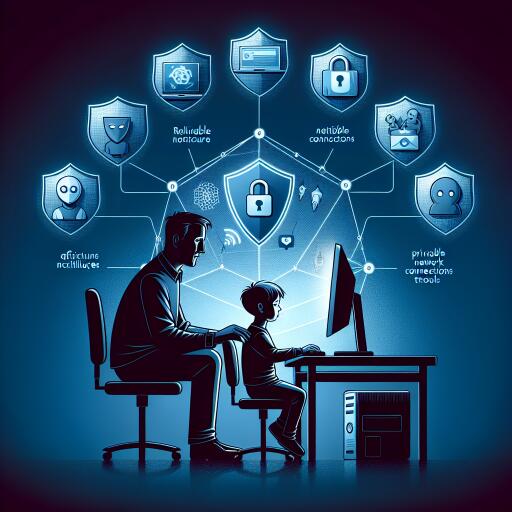Keeping Children Safe from Online Predators
Have you ever pondered how to bolster your child’s safety on the vast digital landscape? As we witness more incidents highlighting the risks involved, understanding and implementing measures for online safety becomes imperative.
Consider this alarming event: a man from California was apprehended in Elkhart after allegedly engaging with a young girl he met online. The situation underscores the importance of educating both parents and children about the potential hazards of internet interactions.
While physical safety remains a priority for parents, it is equally vital to recognize the emotional and mental safety needed for children’s long-term well-being. Embedded within the digital sphere are numerous potential threats, notably on social media platforms. For parents, ensuring that children are aware of these dangers is crucial. Having conversations and setting clear guidelines about internet use can help safeguard them from malicious intents.
The case in question involved a 12-year-old girl being misled using Snapchat, a prevalent social media app where images and videos are the principal means of communication. Although seemingly harmless, some users manipulate these formats, adopting false identities to gain the trust of minors. These deceptive profiles can convince children of their sincerity and harmlessness, creating a false sense of safety.
A key defense against such threats lies in education; informing children about the existence of dangerous individuals online and empowering them to recognize and report suspicious behavior makes a significant difference. Experts emphasize that predators often groom their targets, building a rapport before leading them into harmful situations. They can eventually manipulate communication to leverage the child’s trust, employing tactics that might result in emotional manipulation and guilt.
This dynamic explains why it is essential for parents to cultivate an open and trusting dialogue with their children. Encouraging them to speak up about uncomfortable encounters without the fear of losing their online privileges is a critical step. It is vital that children understand their parents’ role as protectors and confidants rather than as punitive figures when dealing with potential online threats.
Maintaining an atmosphere where children feel safe to disclose any worrying online interactions can deter further escalation and facilitate timely intervention. It is about nurturing an understanding that the internet is an extension of their world where vigilance is necessary.
As social media remains an integral part of modern life, it is unrealistic to eliminate its use altogether. Instead, focusing efforts on education and awareness will equip both parents and children with the skills and knowledge to navigate virtual spaces safely. By staying informed about the ever-changing digital landscape, parents can provide realistic guidance, thus fostering a safer online environment for the younger generation.










